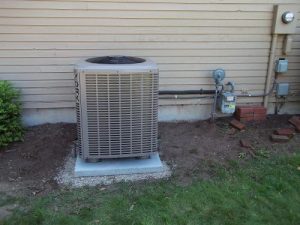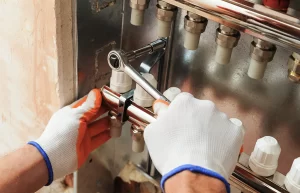There are countless questions that can arise when it comes to the topic of home energy. Homeowners are regularly thinking about ways to save energy and make their homes as efficient as they can possibly be. To assist with some of these topics, we’ve outlined five common questions that may help you on your way to home energy and cost savings.
1. Does insulation alone keep cold air out of my house?
While properly installed insulation certainly can lead to a more efficient home, it doesn’t necessarily do it by keeping cold air out of the house. Insulation actually does a better job keeping warm air inside than it does keeping cold air out. If there are air leaks in the exterior of your home (in the walls, windows, doors, etc.), no amount of insulation will keep cold air from seeping in. Proper air sealing is the best defense against keeping the cold outdoors.
2. Does leaving appliances, computers and other electronics on use less energy than turning them on and off repeatedly?
While this may have been the case with older appliances and computers that were more prone to energy surges, leaving today’s versions of these items on only results in wasted electricity and energy. Given the fact that small energy surges created by turning appliances or computers off and on utilize far less energy than leaving them on, it’s a good idea to always turn them off when their use is not required. The same can be said for lights, by the way.
3. If I fill a pot with hot water from the faucet, will it use less energy to bring to a boil?
The amount of time it takes to bring water to a boil shouldn’t necessarily be equated to the amount of energy used to get it to that point. Sure, hot water from the faucet may boil faster on the stove as opposed to cold water, but energy had to be used to get it warm in the first place. Your hot water heater used energy to heat up the faucet water. In the end, you’re not saving any energy by preheating the water for boiling those veggies.
4. If I leave my ceiling fan on while I’m gone, will I return to a cool house?
Many believe running a ceiling fan (or any other type of standard fan) will bring down the temperature in a room. The truth is, fans do not bring down the temperature of a room. They do, however, cool your skin. A fan works by circulating the air in a space; when the air moves across the skin, we feel cooler even though the air temperature in the room remains the same. Leaving a fan on while you’re away won’t make your house or room cooler for your return. In fact, all it does is waste energy and electricity.
5. Does showering use less energy and water than taking a bath?
In most cases, yes! The typical standard low-flow showerhead uses about 25 gallons of water during a 10-minute shower. Taking a bath could result in water usage of 30-50 gallons. Plus, the amount of energy used to heat that same shower is much less than that needed for the water-heavy bath. When you can, always choose a quick shower over a bath to save water and energy (and time)!
If you have any other questions about home energy savings, you can always reach out to us. We’re happy to provide the answers you need to help you on your way to energy savings and efficiency!







